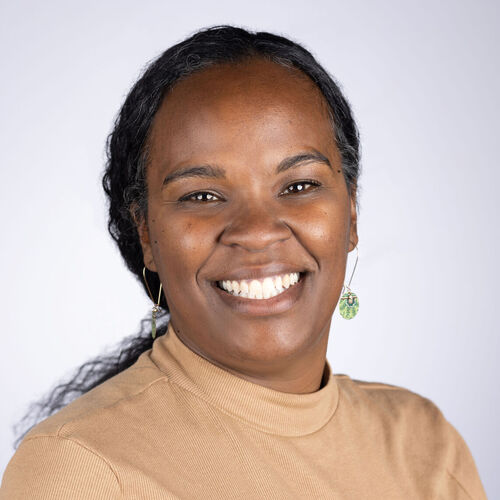Posted on
Equipping new teachers with the skills to unlock deep and durable learning for every student
Category: Learning by Scientific Design
As a first-year teacher, Chris M. is a new graduate of a teacher-preparation program. He’s had some practice teaching experiences and is eager to build relationships with his new students.
In his first few months on the job, he finds that his go-to instructional strategies are mostly engaging the same few students who always raise their hands. He can’t figure out how to effectively reach and engage the rest of his class. As a result, only a handful of students are thinking deeply about ambitious grade-level content.

Experiences like Chris’s are far too common among early-career teachers. When new teachers enter the classroom underprepared to meet the varied needs of all their students, it’s the students who suffer while their teachers take time to learn the ropes. And because students in low-income communities are more likely to be in the classroom of a new teacher, many of these students miss out on quality, rigorous instruction.
At the same time, feelings of unpreparedness contribute to attrition rates among new teachers. A revolving door of early-career teachers negatively affects school culture, disrupts hiring, and erodes trust among families, all of which can have a detrimental impact on student experiences and learning.
The stakes are high for ensuring that new teachers are set up for success.
“This is a pivotal time for our nation to rise up and ensure that every child has dedicated, prepared educators who are committed to their success,” shares Debbie Thomas, Dean of the College of Education at Grambling State University. “Certainly, this is an imperative that started long before the pandemic.”
Ensuring a smooth and successful transition from pre-service to in-service teaching so that new teachers are better prepared with knowledge and skills to enact evidence-based instructional practices is at the heart of what we’re seeking to make possible through the third cohort of our Learning by Scientific Design (LbSD) Network.
When school districts and educator-preparation programs (EPPs) serving the same communities work together to ensure a continuum of instructional support for new teachers, they’re more likely to identify and mitigate challenges that early-career teachers may face. This shared commitment contributes to a stronger local teacher workforce and leads to higher student achievement.
This is an effort that DFI has been supporting in Frederick County, Maryland, through our partnership with Frederick County Public Schools and Hood College. In the first year, our learning sessions and ongoing professional development grounded in learning science contributed to instructional growth among district and school leaders, college faculty, clinical supervisors, and mentor teachers who directly support aspiring and early-career teachers.

Now, we’re thrilled to be scaling district-EPP instructional partnership support through our LbSD Network. With four EPPs and their school and district partners in Louisiana, Maryland, North Carolina, and Virginia, we seek to support teams within EPPs and districts to co-create and implement a shared vision of teaching practice that supports all students and build coherence in the way they prepare and support novice teachers.
Laurie Henry, Dean of the Seidel School of Education at Salisbury University, reflects: “This would provide the opportunity to deepen our relationship with the district and further enhance the expertise of our aspiring teacher candidates. It would help us better align our teacher preparation programs with the priorities of our partner school district.”
Since 2019, our LbSD Network has focused on redesigning clinical practice and coursework to be grounded in a scientific understanding of how students learn – with strong results across the 10 programs in our first two cohorts that collectively prepare 6,400 aspiring teachers annually. With our third cohort, we’re excited about the opportunity to grow the impact of this work by engaging school district partners.
The participants in the third cohort of our LbSD Network are:
Louisiana: Grambling State University, Lincoln Preparatory School, and Bienville Parish Schools
Maryland: Salisbury University and Worcester County Schools
North Carolina: Western Carolina University and Cherokee County Schools
Virginia: Virginia State University and Hopewell City Schools
Together, the EPPs prepare more than 2,000 teacher-candidates annually, and the schools serve over 16,000 students. The EPPs and districts serve a broad range of rural, urban, and suburban communities.
Over the course of the next few years, we’re excited to partner with these EPPs and school districts to equip new teachers with the skills to unlock deep and durable learning for every student.
If you’d like to stay up-to-date on news and stories from this network, subscribe to our newsletter.
Learn more about the LbSD Network from past participants:
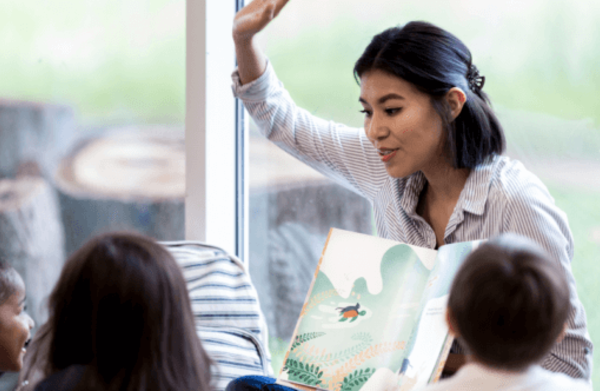
Blog
Future teachers at Temple University practice using learning science in the field
In a bright classroom in Philadelphia, a group of kindergartners clustered around a table as a teach
March 09, 2022

Blog
Intentional innovation: How four faculty in the LbSD Network are improving teacher preparation
We caught up with four faculty members in the Learning by Scientific Design Network...
November 29, 2021
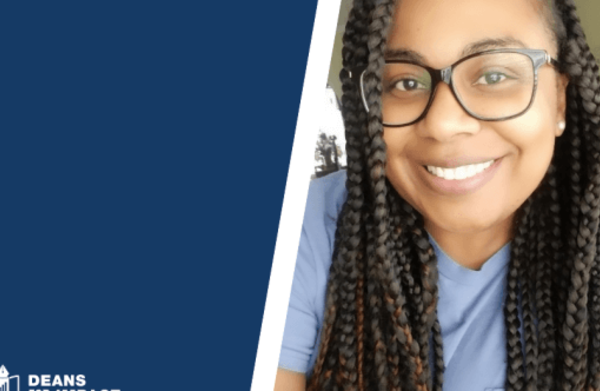
Blog
Working with different tools: How learning science helped Acqualyn Polk to rethink her ELA instruction
On a bright winter day in a classroom 30 miles north of the Louisiana coast, a class of...
April 20, 2021
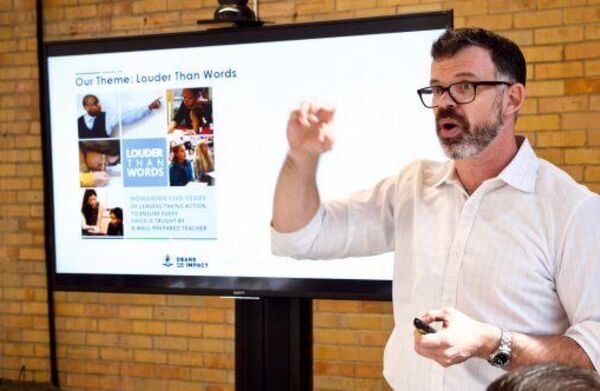
Blog
Learning by Scientific Design: Start with evidence
What do over 1,200 aspiring teachers know about the science of learning?
September 23, 2019
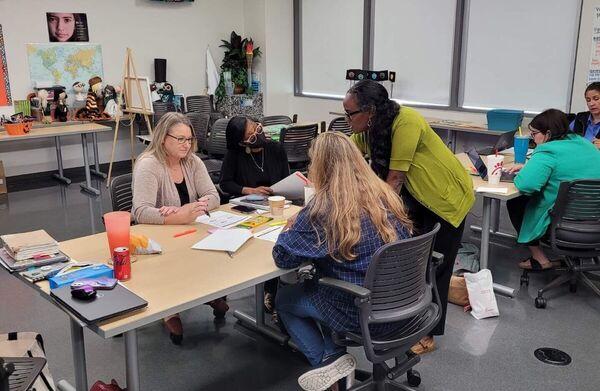
Blog
Empowering clinical supervisors as instructional coaches
We supported clinical supervisors to strengthen coaching and feedback for candidates.
August 15, 2023

